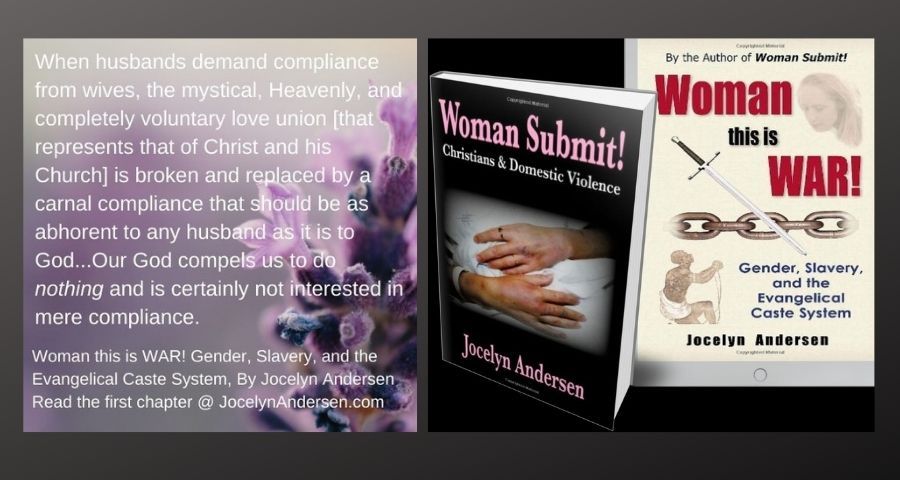[1] Words matter.
In this verse, 'Ishshah is simply being
informed that she has brought a world of sorrow upon herself, but It must be
noted that the language is maliciously loaded against her (the English—not the
Hebrew).
Virtually every English translation adds the
emphatic words “I WILL” to the
tragic observation (given by God to the woman) that the actions of the woman
had just brought the wrath of hell down upon her head.
The woman herself created and caused the awful
consequence--through her actions.
The false image conjured by adding the
non-existent emphatic words, "I Will", to the English text is
that the woman earned the abhorrence of the Almighty, who is portrayed as
standing over her with a vindictive determination to overthrow her at every
turn.
Simply adding the two words, "I Will,"
changes the meaning and perspective of the prophecy from consequential on
the woman's part to spitefully causal on God's part.
But there is a problem with this picture. The
words “I WILL” are not found in the
Hebrew text—they are translator supplements.
Note that such emphatic language is not used in the next verse, regarding
the man. The image conveyed in vs 17, as compared with the one in vs 16,
presents entirely different attitudes from God towards his female and male
creations.
In vs 17, it is the ground that is correctly portrayed as being opposed to the man.
While in vs 16, an entirely false scenario is generated wherein it is God who will oppose the woman, in
raining sorrow upon sorrow upon her contemptible head.
This example of
gender-biased-English-translation-theology, is misogynistic in the extreme, and
not only wrongs woman but God himself, in portraying him as angry and vengeful
towards the woman—which he was not. It is also a glaring example of outright
lies against women perpetrated by Bible translators. And who was going to
argue with them? Bible translation and word definition was strictly controlled,
entirely by men, throughout history, until relatively recent times.
Had God not just told the woman that one of her
male offspring was going to overthrow the serpent who helped orchestrate her
downfall? That statement portrayed nothing but comfort and good-will toward
her. It was designed to give her hope in a hopeless situation--which it did
(her excited utterances about getting a male from the Lord at the births of
Cain and Seth prove she was hanging on to that promise for dear life. She
longed for that blessed offspring—the Messiah—to appear).
As for the prophesied sorrow, YHWH
ELOHIYM was not declaring his hatred for the woman, but simply
informing her of the consequences of her sin—just as he informed the man of
consequences of his.
And his good-will towards both the woman and
man continued. Just a short time later, we read that God himself, in his
infinite mercy, performed the first animal sacrifice (which was type of
Messiah—the Lamb of God—who would take away the sins of the world). We do not
believe it was incidental on the part of Jesus, that he chose a woman to be the
first preacher of the gospel, which is simple the good new of Christs
resurrection from the dead.
The malevolent impression manufactured in
Genesis 3:16, guaranteed perpetual prejudice and persecution against the
hapless woman, and by extension—against all
women. History has proven this to be a strategic move on the parts of male
Bible translators in all ages.
But it is a fact, that God never said to the woman, "I WILL greatly increase your sorrow."
Woman this is WAR! Gender Slavery and
the Evangelical Caste System, examines Bible commentary and translation
practices which have historically been androcentric (male centered) and even
misogynistic (anti-woman).
These have adversely effected
understanding of the scriptures, relations between women and men, the happiness
of men and women, and, in general, has hindered the work of the gospel, by
forbidding women to preach, pastor, or serve as elders or deacons. The book
chronicles the early history of the women's rights movements, as well as the
role of church leadership in aggressively suppressing both women's rights and
the historical record of Christian initiatives within the movements.
Through the complementarian
movement, many of the same arguments used to support the institution of
slavery, are still used today in suppressing the rights of Christian women.
This book documents identical arguments used by Christian leaders against both
movements and is an unparalleled resource for all who desire an in-depth study
of gender equality from a historical and Christian perspective.
This book traces history of
women’s rights, much further than usual, to the very first feminists…who
were Christians—godly women, who brought the issue of women's rights to the
forefront as they struggled to alleviate the suffering of others, and found
they were hindered in doing so for no other reason than the fact of their sex.
This work, provides valuable historical insight into Christian initiatives in
the movements for women’s rights, that are rarely included in Christian
literature.




No comments:
Post a Comment